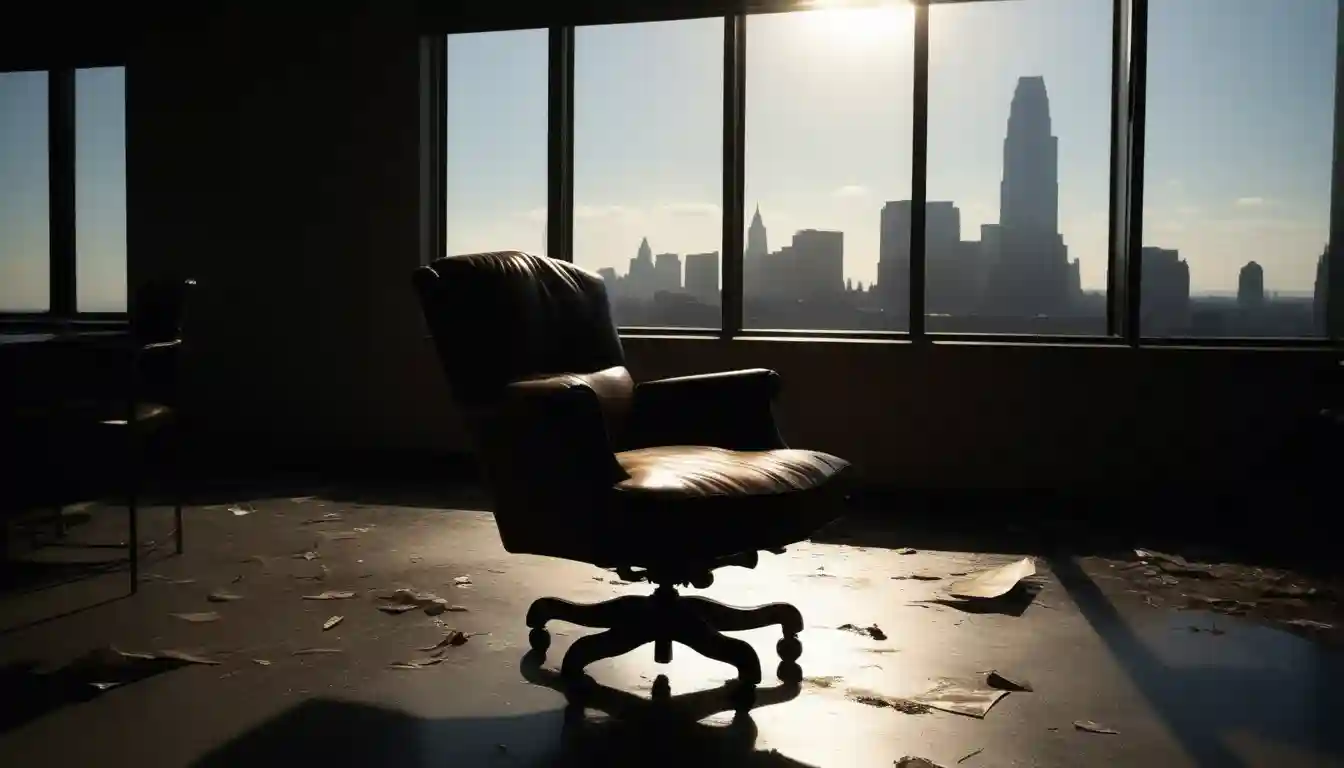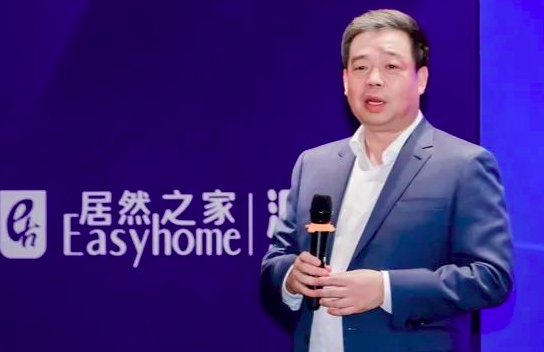
Chinese Executive Suicides Mount as Former Hubei's Richest Man Takes His Life
The Silent Crisis: China's Corporate Suicide Wave Signals Deeper Economic Fault Lines
In the pre-dawn stillness of a Wuhan luxury apartment complex last Sunday, Wang Linpeng—once Hubei's wealthiest man and architect of China's largest home furnishing empire—chose oblivion over his morning routine. The 57-year-old chairman of JuRan ZhiJia plunged to his death just four days after emerging from a three-month detention by anti-corruption authorities.
His fall echoed through China's business corridors like a seismic event, sending the company's stock into free-fall and erasing billions in market value within hours. More disturbingly, it marked the second high-profile suicide in the home furnishing sector in just ten days—and the fifth major Chinese executive to take their own life since April.
A Series of Suicides Among Top Chinese Business Executives (2025)
| Name | Date of Death | Age | Company/Title | Cause of Death | Notable Background / Circumstances |
|---|---|---|---|---|---|
| Wang Linpeng | July 27, 2025 | 57 | Chairman of JuRan Zhijia; former richest man in Hubei | Jumped from building | Died days after release from 3-month detention by anti-corruption unit; company stock plunged after news broke. |
| Zeng Yuzhou | July 17, 2025 | — | Founder of Liangjiaju (home renovation giant) | Jumped from building | Faced collapse of firm with 1B yuan liabilities; livestreamed hours before death; business model failed post-pandemic. |
| Shen Kangming | ~July 3, 2025 | 54 | Board director at Zhejiang Construction Investment Group (SOE) | Jumped from building | Cause not disclosed initially; reports surfaced later; linked to internal investigations. |
| Liu Wenchao | June 2, 2025 | — | President of Xizi Elevator Technology Co. | Jumped from building | Occurred days after a public safety speech; under pressure from legal suits (190+ cases), IPO troubles, and operational stress. |
| Bi Guangjun | April 16, 2025 | 56 | Textile magnate; known for precision printing | Jumped from 28th floor | Victim of 400M RMB scam via fake letters of credit; mortgaged homes to pay workers; final message: “fabric is like life; one wrong stitch ruins everything.” |
"The Ghosts at the Boardroom Table"
"When Wang walked back into headquarters on Tuesday, everyone applauded. By Sunday, we were planning his memorial," said a mid-level manager at JuRan ZhiJia who requested anonymity. "The man who transformed a nearly bankrupt shop into a national brand with 368 billion yuan in value couldn't see a tomorrow worth living."
The timing proved particularly cruel. Wang had only just completed what insiders describe as a grueling three-month "disciplinary review" by Wuhan's Jianghan District Commission. Though officially released, he returned to find his company's shares under judicial freeze and rumors swirling about alleged improprieties in JuRan ZhiJia's 2019 backdoor listing.
Market analysts had barely processed the July 17 suicide of Zeng Yuzhou, founder of renovation giant Liangjiaju, whose death coincided with his company's sudden bankruptcy announcement—leaving over 2,000 customers with half-demolished homes and 1 billion yuan in unfulfilled contracts.
"These aren't isolated tragedies—they're credit events in disguise," explains a Shanghai-based economist specializing in private enterprise risks. "Each suicide functions as a public mark-to-market moment exposing structural cracks in China's growth model."
The Death Spiral: When Success Becomes a Liability
A deeper pattern emerges when examining the five executive suicides since April. Textile magnate Bi Guangjun jumped from his 28th-floor balcony after reportedly falling victim to a 400-million-yuan Middle East orders scam. Liu Wenchao of Xizi Elevator Technology leapt to his death while juggling 190 pending legal cases and stalled IPO plans. Shen Kangming, a director at state-owned Zhejiang Construction Investment Group, ended his life amid whispers of internal investigations.
"The common thread isn't financial failure—it's the collision of scrutiny with stigma," observes a Beijing-based mental health researcher who studies executive stress. "These were industry pioneers who built empires from nothing, only to watch as investigations, debt spirals, and the imperative to 'save face' created impossible psychological equations."
Wang's trajectory illustrates this arc perfectly. After leaving a comfortable position at China's Commerce Ministry in 1999, he rescued JuRan ZhiJia from near-collapse, expanding it into a nationwide chain. The company's 2019 IPO represented his crowning achievement, securing his status as Hubei's richest individual on that year's Hurun wealth rankings.
"The Risk Premium of Breathing"
The market reaction to these deaths has been swift and severe. JuRan ZhiJia shares plummeted at Monday's opening bell, triggering circuit breakers as institutional investors recalibrated what analysts now grimly term "leadership continuity risk."
"We're witnessing the emergence of a survival discount in Chinese private equities," notes a veteran fund manager at a major Asian sovereign wealth fund. "Investors now must price in not just regulatory risk but the probability of an executive being detained or self-destructing. That's pushing price-to-earnings ratios into single digits regardless of fundamentals."
The consequences ripple beyond stock prices. When founders vanish, commercial banks freeze credit lines, suppliers demand cash, and employees seek exits—creating contagious default waves as small and medium enterprises that cross-guarantee one another's loans fall like dominoes.
"Each of these deaths represents a systemic failure," says a corporate governance expert with ties to China's financial regulators. "Not merely of individuals under duress, but of a framework that prioritizes punishment over prevention."
The Metamorphosis of Money Flows
Capital is already voting with its feet. Investment is increasingly crowding into state-owned enterprises and hybrid "red-chip tech" companies perceived as enjoying policy protection. According to Peterson Institute tracking, private firms' share of top-100 market capitalization has remained stubbornly below 40%—rising slightly in 2025's first half only because state companies lost value even faster.
"Money follows perceived safety," explains an investment strategist at a multinational bank. "The market is now performing a massive flight-to-policy-shelter rotation that could reshape China's corporate landscape for years."
The consequences extend beyond China's borders. Foreign brands and suppliers watching a leading mall operator disappear in 48 hours are reassessing counterparty risk. "If your Chinese partner is privately owned and debt-heavy, your receivables just shifted from commercial to quasi-sovereign risk," warns a supply chain consultant advising European luxury brands.
Navigating the Fault Lines: Investment Perspectives
For investors seeking to navigate this evolving landscape, several strategies emerge from expert analysis:
Sector rotation may favor state-backed industries less dependent on individual founders. "Defense, telecommunications, and grid operators should outperform consumer discretionary stocks until confidence stabilizes," suggests a Hong Kong-based investment director.
Risk-hedging approaches could include increased allocation to markets benefiting from supply chain diversification. "India, Mexico, and Türkiye are seeing capital inflows as portfolio managers recalibrate emerging market exposure," notes a global macro strategist.
For those maintaining China exposure, governance metrics take on new importance. "Companies with distributed leadership, transparent succession plans, and robust mental health support should command premium valuations," argues a corporate sustainability advisor.
Importantly, these trends may create overlooked opportunities. "Beijing recognizes the confidence crisis and will likely introduce measures to prevent further tragedies," observes a policy analyst tracking regulatory developments. "Early movers in mental health services, corporate governance consulting, and restructuring expertise could see significant growth."
The Human Balance Sheet
As markets calculate the financial impact of these deaths, the human cost remains immeasurable. In Shaoxing, Bi Guangjun's autistic son continues painting designs his father once transformed into Milan Fashion Week fabrics, unaware that the man who made his art shine will never return to the workshop at 3 a.m.
In boardrooms across China, executives now perform a grim calculus—weighing the price of compliance against the cost of continuing. Until that equation changes, the shadow of uncertainty will continue to darken China's entrepreneurial landscape, with consequences felt far beyond balance sheets and market indexes.
Note: This article presents analysis based on current market data and economic indicators. Past performance does not guarantee future results. Readers should consult qualified financial advisors for personalized investment guidance.